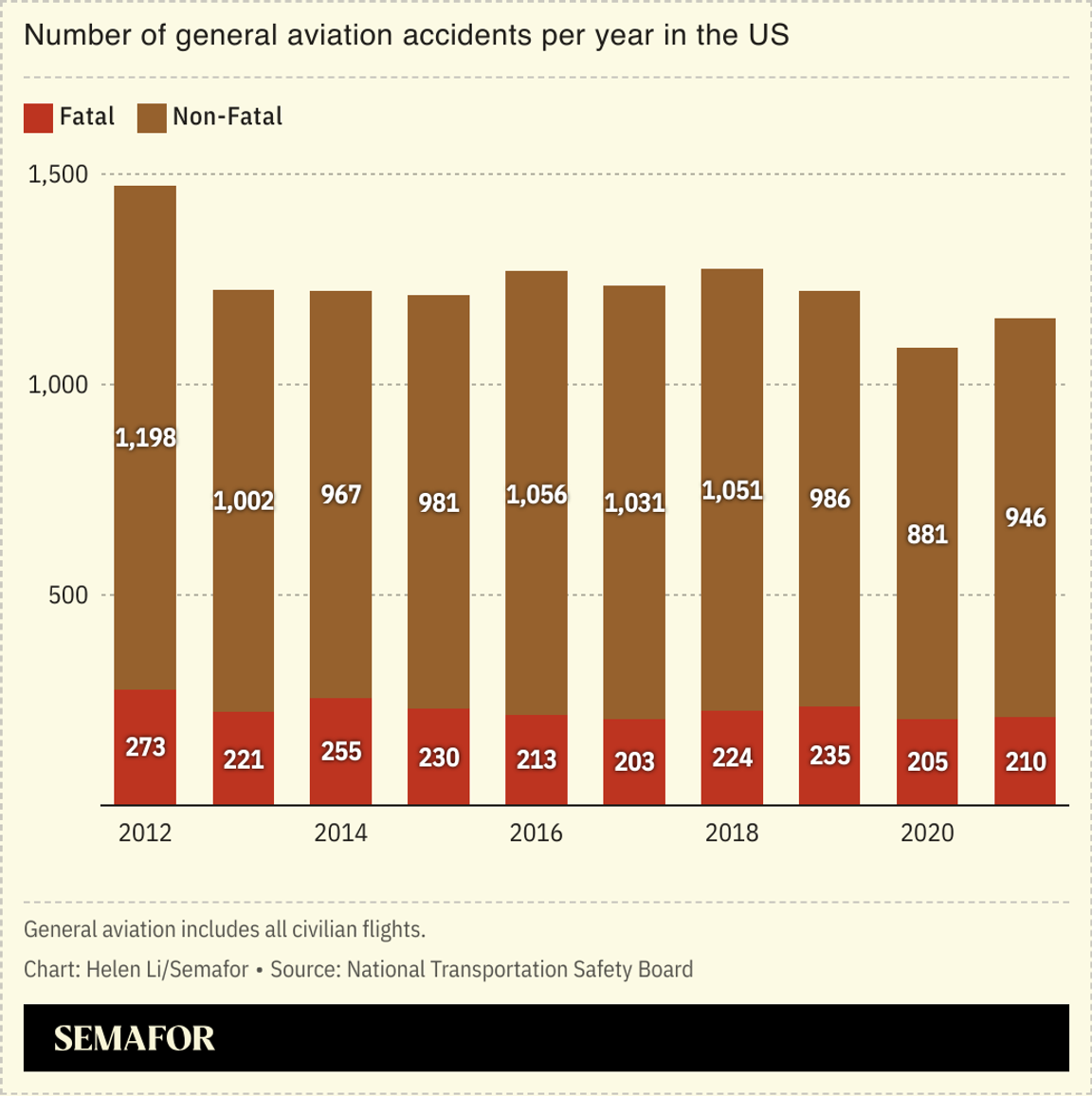 A 73-year-old man died of a suspected heart attack and around 30 others were injured after extreme turbulence on a Singapore Airlines flight Tuesday. Turbulence costs US airlines up to $500 million a year in damages, delays, and injuries, CNN reported. More than 5,000 flights experience severe turbulence every year, and thanks to climate change, that number could increase significantly by 2050 to 2080, according to researchers. These cases involve “clear air turbulence” that doesn’t come with visual warnings like storms or clouds and is therefore harder for pilots to avoid. But that doesn’t mean planes will start falling from the sky, an atmospheric science professor said: “They can withstand the worst turbulence they can ever expect to encounter, even in the future.” |